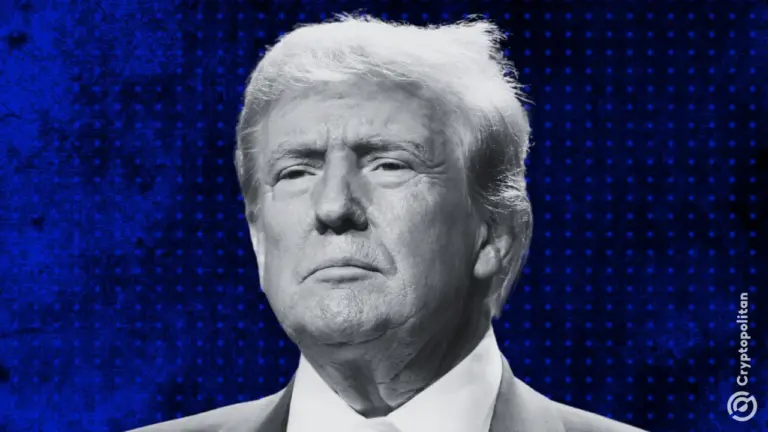Andrew Tate Turns Profit Shorting Kanye West’s YZY Token as Losses Mount for Retail Investors
Andrew Tate has booked a $16,000 gain from betting against Kanye West’s meme coin YZY, even as the token’s market collapse highlights the risks surrounding celebrity-linked cryptocurrencies.
Andrew Tate has booked a $16,000 gain from betting against Kanye West’s meme coin YZY, even as the token’s market collapse highlights the risks surrounding celebrity-linked cryptocurrencies.
Blockchain analytics platform Lookonchain reported that Tate opened a three-times leveraged short on YZY at $0.8524. With the token now trading near $0.77, the former kickboxer remains in profit.
Andrew Tate( @Cobratate ) opened a 3x short on $YZY at $0.8524, now sitting on a profit of $16K.
But he doesn’t seem to be good at perps trading.
So far, he’s made 80 trades on #Hyperliquid — only 29 were profitable (win rate: 36.25%) — with total losses of $699K.… pic.twitter.com/ZvR9QZEVEk
— Lookonchain (@lookonchain) August 22, 2025
But the win comes against a backdrop of poor trading performance. Data from Lookonchain shows Tate has executed 80 trades on the platform, with only 29 proving profitable. His cumulative losses total about $699,000, leaving him with a win rate of just 36.25%.
Meanwhile, YZY has become the latest example of speculative mania in crypto markets. The token surged to a $3 billion valuation within 40 minutes of launch this week, driven by Kanye West’s celebrity brand and viral hype. That rally was short-lived. According to CoinGecko, YZY has fallen nearly 23% in the past 24 hours alone, sliding to $0.7743 and shrinking its market capitalization to roughly $100.3 million.
Lookonchain data points to a highly concentrated supply structure that favored insiders. At launch, more than 94% of YZY’s total supply was controlled by a handful of wallets, with one multisig holding 87% before retail investors gained access.
Insiders appear to have cashed out substantial profits. One wallet labeled “6MNWV8” spent 450,611 USDC to buy 1.29 million tokens at $0.35, later selling most for 1.39 million USDC while retaining holdings still valued at around $600,000. Another early buyer invested 12,170 SOL about $2.28 million for 2.67 million tokens, now sitting on an unrealized gain of $6 million.
While YZY unravels, another Tate-linked token is gaining traction. Memecoin $DADDY, promoted by Tate last year, jumped 45.8% in the past 24 hours, according to CoinGecko. Trading activity surged alongside the rally, with 24-hour volume soaring 127.8% to $451,573 and a volume-to-market cap ratio of 9.85%, signaling renewed speculative interest.
Disclaimer: The content of this article solely reflects the author's opinion and does not represent the platform in any capacity. This article is not intended to serve as a reference for making investment decisions.
You may also like
ECB says no need for more rate cuts now as inflation hits 2% target
Share link:In this post: The ECB has paused rate cuts after inflation hit the 2% target. Olli Rehn said there’s no need for more cuts unless new risks appear. Joachim Nagel believes policy should stay unchanged unless conditions shift.
Databricks buys Sequoia’s Tecton in push to dominate enterprise AI tools
Share link:In this post: Databricks is acquiring Tecton to boost its real-time AI agent tools. Tecton was last valued at $900M and has around 90 employees. The deal follows Databricks’ $100B valuation term sheet signed this week.

Vitalik Buterin’s FOCIL proposal reignites censorship debate among Ethereum leaders
Share link:In this post: Vitalik Buterin argues FOCIL will make Ethereum more neutral and censorship-resistant. However, Reflexer Labs warns that FOCIL could be a big problem for Ethereum as the current system is still working. Debate on censorship resistance continues with crypto attorney Gabriel Shapiro saying FOCIL might be worth the risk.

Trump’s $9B investment won’t fix Intel’s real problem
Share link:In this post: The U.S. government, under Trump, will invest $8.9 billion for a 9.9% stake in Intel, aiming to boost domestic chip production and make the government Intel’s largest shareholder. Despite the funding, analysts warn Intel’s contract chipmaking (14A and 18A processes) won’t be viable without major external clients and improved manufacturing yields. The deal, which includes discounted shares and no board seat, reflects a rare federal intervention in corporate ownership.

